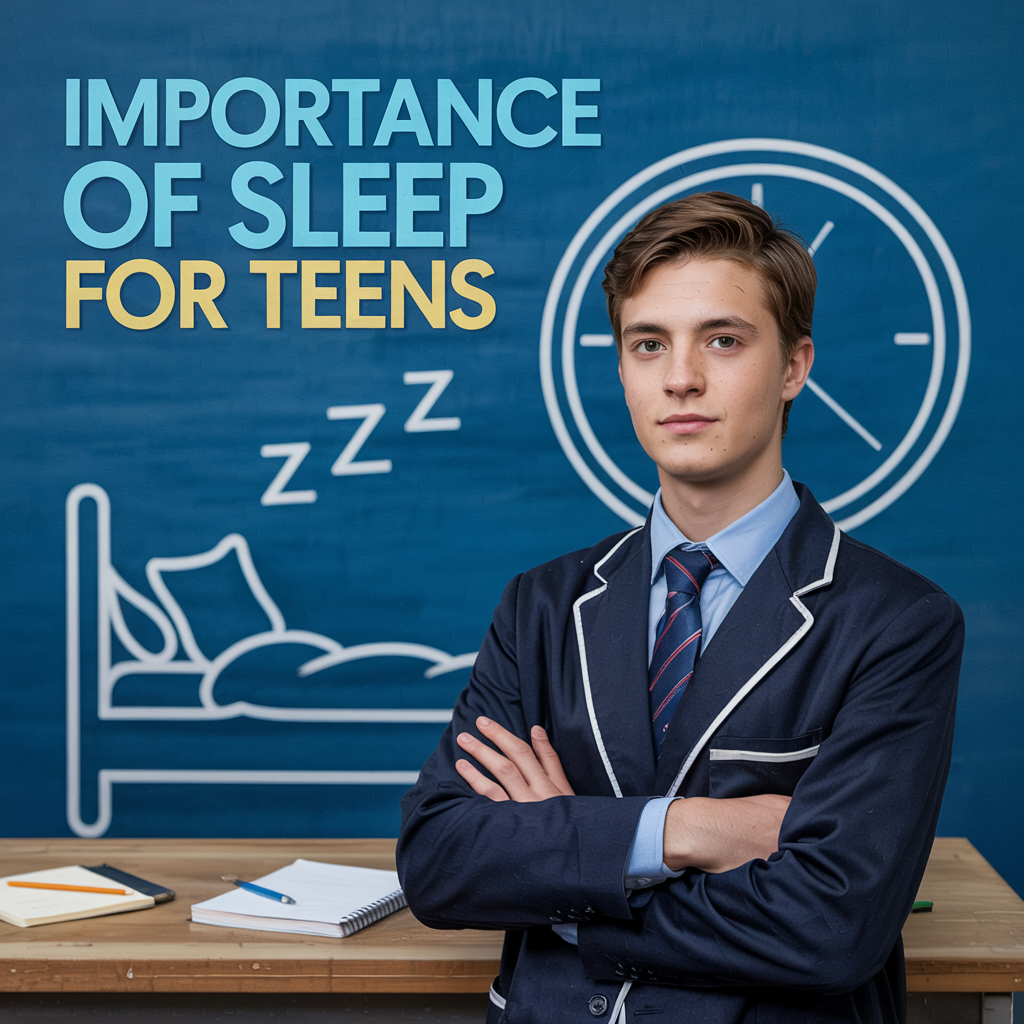How Sleep Deprivation Impacts Your Brain, Mood & Grades (And How to Fix It)

Between school, homework, activities, social life, and maybe even a job, finding time for sleep can be tough. But skimping on sleep isn’t a badge of honor — it takes a toll on your brain, mood, and school performance.
Understanding the importance of sleep is a game-changer for your well-being. This article will help you recognize how sleep deprivation affects academics, and show you how to reset your sleep schedule to feel more rested, focused, and ready to take on each day.
Sleep: More Than Just Downtime
Sleep isn’t just your body shutting off. During sleep, your brain is incredibly active:
- Consolidating memories (transferring info from short-term to long-term memory).
- Processing information learned during the day.
- Clearing out waste products.
- Repairing cells throughout your body.
- Regulating hormones that affect mood, appetite, and growth.
Why sleep matters: brain function depends on it. If you want your brain to fire on all cylinders, make sleep a non-negotiable—and check out Cirkled in for more ways to stay on top of school and life.
How Much Sleep Do Teens Actually Need?
Most teenagers need about 8 to 10 hours of sleep per night for optimal functioning. Getting significantly less than this on a regular basis leads to sleep deprivation.
The Brain Drain: How Lack of Sleep Affects Focus & Learning
When you’re sleep-deprived, your brain doesn’t work as well:
- Difficulty Concentrating: Trouble focusing in class or while studying.
- Memory Problems: Harder to learn new information and recall things you’ve already learned.
- Reduced Problem-Solving Skills: Thinking clearly and creatively becomes more difficult.
- Slower Reaction Times: Can even impact things like driving safely.
- Poor Decision Making: More likely to make impulsive or poor choices.
Mood Swings & Stress: Sleep’s Impact on Emotions
Lack of sleep significantly affects your mood and emotional regulation:
- Increased Irritability: Little things might annoy you more easily.
- Higher Stress Levels: Sleep deprivation can make it harder to cope with daily stressors.
- Increased Risk of Anxiety and Depression: Chronic sleep problems are strongly linked to mental health challenges.
- Emotional Reactivity: You might experience more intense mood swings.
Grades & Performance: The Academic Connection
The link is clear: sleep deprivation effects academics negatively.
- Difficulty paying attention in class leads to missed information.
- Memory problems make studying less effective and test-taking harder.
- Reduced focus makes homework take longer and quality may suffer.
- Overall cognitive impairment leads to lower grades and academic performance.
Good teen sleep habits support school success. And with tools like Cirkled in, staying organized and reducing academic stress just got easier.
Why Teens Struggle with Sleep
Several factors contribute to teen sleep problems:
- Natural Shift in Sleep Cycle: Teens’ internal body clocks (circadian rhythms) naturally shift later, making it harder to fall asleep early and wake up early for school.
- Busy Schedules: Homework, activities, jobs leave less time for sleep.
- Screen Time: Blue light from phones, tablets, and computers before bed suppresses melatonin (the sleep hormone). Social media or games can be stimulating.
- Caffeine: Consuming caffeine (soda, energy drinks, coffee) too late in the day.
- Stress and Anxiety: Worrying can make it hard to fall asleep.
Tips to Fix Sleep Schedule Student Needs
Improving your sleep takes consistent effort:
- Stick to a Consistent Schedule: Go to bed and wake up around the same time every day, even on weekends, as much as possible.
- Create a Relaxing Bedtime Routine: Wind down for an hour before bed – read a physical book, take a warm bath, listen to calm music.
- Optimize Your Bedroom: Make it dark, quiet, and cool.
- Limit Screens Before Bed: Avoid phones, tablets, computers, and TV for at least an hour before sleep. Charge devices outside your bedroom.
- Avoid Caffeine/Large Meals Late: Don’t consume caffeine after mid-afternoon. Avoid heavy meals close to bedtime.
- Get Morning Sunlight: Exposure to natural light shortly after waking helps regulate your body clock.
- Exercise Regularly (But Not Too Close to Bedtime): Physical activity promotes better sleep.
These tips help achieve better sleep high school requires.
When to Seek Help for Sleep Problems
If you consistently have trouble falling asleep, staying asleep, or feel excessively tired during the day despite trying these tips, talk to your doctor. They can rule out underlying medical issues or sleep disorders.
Final Thought: Prioritize Your Sleep for Success
Understanding the importance of sleep is critical for teens. It’s not a luxury — it’s essential for your brain, mood, health, and academic success.
Prioritize building healthy sleep habits and aim for that 8–10 hour sweet spot. Learning how to reset your sleep schedule, even with a busy student life, is one of the best investments you can make in your overall well-being.
Need more tips on college applications, scholarships, or just how to survive this whole process? Cirkled In has your back—check out Cirkled In resources to help you through every step of your college journey! Check out Cirkled In and start owning your future today!



2 Comments
martin · September 4, 2025 at 1:43 pm
it the best website ever
Amy S · September 5, 2025 at 8:49 am
You just made our day, Martin! 💙 Thanks for the love—glad you’re finding the site helpful. Keep thriving! 🌙✨